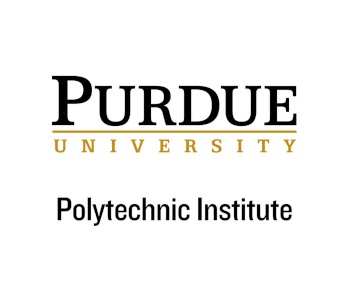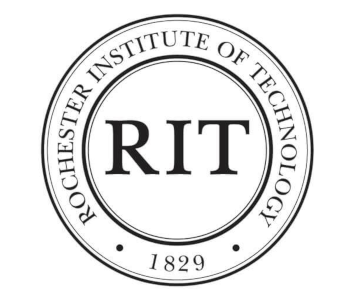10 Best Cyber Security Schools
Cybersecurity has become one of the fastest-growing fields of work in the world. In the next decade, employment rates in this industry are expected to rise by over 30%, prompting many to consider pursuing a path in this exciting and evolving field.
In this guide, we will be looking at the best cybersecurity schools in the states and comparing their various pros and cons. Before we get into that, however, lets first discuss what a cybersecurity degree entails and why it is so worthwhile in today’s job climate.
Why pursue a Cybersecurity Degree?
Cybersecurity degrees offer a lot of opportunities, providing graduates with the chance to work in counter-terrorism roles, the military, and various investigatory professions. At a commercial level, they also open up an ever-expanding job market to graduates, as companies are becoming increasingly reliant on cybersecurity professionals to help protect vital assets in our modern connected world.
A degree program in cybersecurity will teach you not only about the various principles and concepts related to the professions, but also practical skills that can be used on-the-job after you graduate. You will be shown how to protect data, access it, recover information, and decrypt passwords and other important files. You will also be taught about the laws surrounding cybersecurity, as well as the ethical arguments regarding what is acceptable in relation to privacy.
This makes cybersecurity a very interesting subject to study, as it covers many different aspects of technology as well as society. It is also a very progressive subject in the sense that curriculums are regularly updated to meet modern needs and requirements.
Top Cybersecurity Schools
| School Name | Location | Specializations | Program | Requirements |
|---|---|---|---|---|
| Georgia Institute of Technology | Atlanta, GA |
| MS in Cybersecurity |
|
| Purdue University | West Lafayette, IN |
| MS in Cybersecurity |
|
| University of Maryland – College Park | College Park, MD |
| MEng in Cybersecurity |
|
| George Mason University | Fairfax, VA |
| BS in Cybersecurity Engineering |
|
| Rochester Institute of Technology | Rochester, NY |
| MS in Computing Security |
|
| University of Pittsburgh | Pittsburgh, PA |
| MS in Information Science |
|
| Texas A&M University – College Station | College Station, TX |
| MS in Computer Engineering |
|
| University of California – Davis | Davis, CA |
| MS in Computer Science |
|
| Virginia Tech | Blacksburg, VA |
| BS in Computer Engineering |
|
| University of Washington | Seattle, WA |
| BS in Informatics |
|
1. Georgia Institute of Technology

The Georgia Institute of Technology is well regarded for its various technology programs, with its master’s degree in cybersecurity earning plenty of plaudits from both students and industry experts. The institute’s tech program is particularly focused on the practical application of cybersecurity, rather than the theory behind it, which has allowed it to produce some exceptional graduates over the years, with many of them going on to work in some of the top cybersecurity organizations in the world.
The institute offers three specializations for you to choose from, allowing you to tailor the course to your specific needs. The first option is information security, which focuses on examining security principles and emerging techniques for software, as well as computer systems and networks. The second path is energy systems, which looks at how to hone the security of physical and embedded systems in relation to the energy domain.
The third and final path is public policy. This path is a little different from the other two, as it focuses more on law and the management of cybersecurity and privacy. Despite this, however, it still features many practical labs for you to learn useful job-relevant skills, getting you ready for life after education.
To get a place in the program, you will need to hold a bachelor’s degree in a related subject. This could be anything from computer science to physics or mathematics. However, you should be aware that the further afield your bachelor’s degree is, the more difficult you will likely find the program to be.
You will also need to complete an online test to prove your competency in the subject. This allows the institute to assess whether or not you are likely to pass the course, as well as get an idea of where you are in terms of experience.
The institute also requires a minimum of three recommendation letters to confirm you are a good candidate for the program. These letters are used to confirm your capabilities in the subject, as well as show what sort of person you are. For this reason, it is recommended that these letters are written by previous lecturers or tutors. However, sports coaches and club organizers may also be allowed to write you a recommendation, provided it is approved by the institute.
The program also requires you to have a grade point average of at least 3.5 out of 4.0, which is equivalent to around 88%, or a letter grade of B+. This means you not only need to pass your undergraduate degree but excel in it, making this master’s program one of the more difficult to get onto.
Learn More: https://iisp.gatech.edu/masters-degree
Location
- Atlanta, GA
Specializations
- Information Security
- Energy Systems
- Public Policy
Program
- MS in Cybersecurity
Requirements
- Undergraduate degree in computer science or a related field
- Completion of online test
- Three recommendation letters
- Minimum GPA of 3.5
2. Purdue University

Purdue University’s CIT (Computer Information Technology) program has been ranked as the fourth-best bachelor of science IT program in all of the United States. It is also well regarded by employers due to the facilities it provides and the quality of teaching it offers.
The university’s cybersecurity major sits within this program, benefitting from some of its key features such as close-knit classes, industry-standard labs, teaching from world-class cybersecurity experts, and a polytechnic learning environment. The major also provides plenty of hands-on learning projects, giving you plenty of opportunities to learn practical skills.
The educational objectives of the program are to develop graduates into information technology practitioners, who are both problem solvers and lifelong learners. There is also a view that graduates will become future industry leaders in information technology, which should give you some idea of how highly the university values its students.
The two main specializations of the program are information security and cyber forensics, two of the most popular divisions within cybersecurity at this time. Both of these learning paths provide plenty of on-the-job skills. However, each differs in the subject matter considerably as the program progresses.
Purdue University also boasts an employment record of 92.5% for its graduates, which are excellent odds even within an industry enjoying high employment figures at the moment. The average starting salary for graduates of CIT is also around $65,000, which is a great figure in today’s climate.
Unfortunately, Purdue hasn’t provided much information regarding the requirements needed to get a place on its cybersecurity program. However, given how well regarded it is, you should expect to need excellent grades in your college subjects, as well as multiple recommendation letters.
Location
- West Lafayette, IN
Specializations
- Information Security
- Cyber Forensics
Program
- BS in Cybersecurity
Requirements
- Minimum GPA of 3.0
3. University of Maryland – College Park

The University of Maryland has been providing an excellent master’s program in cybersecurity for some time now, drawing interest from some of the top aspiring students in the world. One of the reasons for this is the fact that the program is delivered in collaboration with various computing and engineering departments at the university. This allows you to merge engineering applications with computing principles, better preparing you for life after education with skills and knowledge that can be applied in working environments.
Unlike most of the other programs in this guide, this major focuses solely on cybersecurity, covering most aspects of the subject in great detail and teaching how to become a well-rounded cybersecurity engineer. This will likely appeal to you if you aren’t sure exactly what career you wish to pursue within the field. However, if you have your heart set on becoming a forensics expert, for example, you might find the course material to be a little cursory.
To obtain full admission onto the program, you will need to hold a bachelor’s degree in computer science, engineering, applied mathematics, or physics. A minimum GPA of 3.0 is also necessary, as it proves your competency as a student.
For provisional admission, a bachelor’s degree in a closely related field, such as another technology subject is required. Again, this will need to have been obtained with a GPA of at least 3.0. On top of this, you will also need to possess at least one certification from the following:
- CompTIA Security+
- GIAC GSEC
- Certified Ethical Hacker
There is also a requirement that provisional applicants score at least a B in their first two out of four courses. This makes the program rather strict compared to some of the others in this guide. However, this is to be expected considering its reputation.
Learn More: http://www.cyber.umd.edu/education/meng-cybersecurity
Location
- College Park, MD
Specializations
- Cybersecurity
Program
- MEng in Cybersecurity
Requirements
- Undergraduate degree in computer science, engineering, applied mathematics, or physics
- Minimum GPA of 3.0
4. George Mason University

George Mason University offers both a bachelor’s of science major in cybersecurity engineering, as well as an accelerated master’s program in the same subject. Both programs focus on the engineering of integrated cyber-physical systems, providing a strong foundation in the topic. The program is also deemed most appropriate for students with a strong mathematics or science background, meaning good grades in these subjects are a must.
The major offers three learning paths to choose from, including cybersecurity, information security, and digital forensics. This gives you the opportunity to tailor your path to suit the career you are pursuing, which is great provided you are already sure of what you want to do after you earn your degree.
To be considered for a place on the program, you will need to have obtained exceptional grades at SAT or ACT level, preferably in related subjects. You will also need to provide evidence of academic preparation for university-level work, as well as proof that you have pursued the most rigorous curriculum available at your school. The university also requires that you submit your first semester grades from your junior year.
These requirements might seem excessive. However, they can actually work in your favor as they allow you to prove to the university that you are not only a competent student but also a dedicated one.
Learn More: https://catalog.gmu.edu/colleges-schools/engineering/cyber-security-engineering-bs/
Location
- Fairfax, VA
Specializations
- Cybersecurity
- Information Security
- Digital Forensics
Program
- BS in Cybersecurity Engineering
Requirements
- Exceptional grades, SAT, or ACT scores
- AP/IB/Honors level coursework
- Must submit first-semester junior year grades
5. Rochester Institute of Technology

The Rochester Institute of Technology is a private university located in Rochester, New York. The institute is well-known for its prestigious technology programs, with its masters in Computing Security earning plenty of plaudits for its relevant topics and practical approach.
The master’s program has two learning paths available, including information sciences, and cryptography. The former focuses on more general principles of cybersecurity, while the latter is more mathematics heavy with a focus on encryption algorithms and other methodologies.
As this is a master’s program, you will only be considered for a place if you hold a bachelor’s of science or engineering in a related field. This means anything from computer science all the way to physics. However, the more closely related the two programs are, the better your chances are of being accepted.
You will also need to make sure you have a GPA of at least 3.0, which is equivalent to a B in letter grading. This means you will need to have done reasonably well in your bachelor’s program. However, compared to some of the universities in this guide, this is a fairly relaxed requirement.
The institute also requires that you provide at least two recommendation letters from past lecturers or another credible source. This allows the institute to gauge what sort of student you are, giving them a better idea of your personality, as well as your strengths and weaknesses.
Learn More: https://www.rit.edu/study/computing-security-ms
Location
- Rochester, NY
Specializations
- Information Sciences
- Cryptography
Program
- MS in Computing Security
Requirements
- Undergraduate degree in computer science or a related field
- Minimum GPA of 3.0
- Minimum of two recommendations
6. University of Pittsburgh

The University of Pittsburgh is one of a handful of shortlisted universities offering five ‘Committee on National Security Systems’ certifications. On top of this, the university also offers a highly-regarded master’s program in Information Science, which has been praised for its thorough and relevant material.
The program has five specializations to choose from, including big data analytics, database and web systems, geoinformatics, human-centered computing, and information security. Each of these topics varies quite considerably from the others, making the program very specific in its approach. This is great if you are set on pursuing a career in one of these specializations. However, it could be an issue if you are looking for a more generic syllabus.
As is the case with all the master’s programs in this guide, you will need to hold at least a bachelor’s degree in a related field to be considered. This should preferably be in computer science. However, mathematics, physics, and certain engineering degrees may also be accepted.
A minimum GPA of 3.0 is also required. However, this is common among master’s programs and shouldn’t be too difficult to obtain. You should also provide letters of recommendation to further increase your chances of being accepted.
Learn More: http://sci.pitt.edu/academics/masters/is/
Location
- Pittsburgh, PA
Specializations
- Big Data Analytics
- Database and Web Systems
- Geoinformatics
- Human-Centered Computing
- Information Security
Program
- MS in Information Science
Requirements
- Undergraduate degree in computer science or a related field
- Minimum GPA of 3.0
7. Texas A&M University – College Station

Texas A&M University provides its masters in computer engineering program under its world-renowned college of engineering. The degree is rather broad in its approach, incorporating courses from a variety of different colleges at the university, giving you a well-rounded base of knowledge to work with. The degree is also classed as a research degree, meaning both a thesis and thesis defense will be required.
The program offers three specializations in the form of cybersecurity, cyber law, and risk management. Each of these learning paths will, of course, focus on their specific areas of study. However, the core principles of each specialization should remain mostly the same.
To book your place on the program, you will need to hold a bachelor’s degree in computer science, engineering, or another related field such as mathematics. You will also need to provide the university with at least three recommendation letters to prove your competence and reliability as a student.
A GPA of at least 3.0 is also required. However, it is also imperative that none of your grades are below a C grade as well. You will also be asked to complete a preliminary exam before being enrolled in the program, as well as submit a dissertation proposal.
Learn More: https://engineering.tamu.edu/cse/academics/degrees/graduate/ms-ce.html
Location
- College Station, TX
Specializations
- Cybersecurity
- Cyber Law
- Risk Management
Program
- MS in Computer Engineering
Requirements
- Undergraduate degree in computer science, engineering, or a related field
- Minimum of three recommendations
- Minimum GPA of 3.0
8. University of California – Davis

The University of California is a public university located in Davis. The institution offers a wide variety of technology programs. However, its master’s program in computer science has garnered particular attention, due to its focus on cybersecurity skills and methodologies.
The program offers three learning paths to choose from, with each one focusing on a different aspect of computer science. The most appealing from a cybersecurity perspective is the information assurance path, as it focuses almost entirely on cybersecurity principles and techniques.
The other two paths may also be of interest to you. However, it is important to note that they are less focused on cybersecurity, and more centered around the architectural and application aspects of computer science.
As you would expect, you will need to hold a bachelor’s degree in a related field to be considered for the program, with computer science, mathematics, and electrical engineering among the approved options. You will also need to have graduated from your bachelor’s degree with a GPA of at least 3.0, putting the prerequisites for this degree on par with most of the others in this guide.
Learn More: https://www.ucdavis.edu/graduate-programs/computer-science
Location
- Davis, CA
Specializations
- Information Assurance
- Architecture
- Applications
Program
- MS in Computer Science
Requirements
- Undergraduate degree in computer science or a related field
- Minimum GPA of 3.0
9. Virginia Tech

Virginia Tech has built a stellar reputation for itself over the years, with many aspiring technology and engineering enthusiasts now vying for a place on its programs every year. The institute is certainly one of the more competitive in this guide. However, if you are lucky enough to be accepted onto one of its programs, you are almost guaranteed an exceptional level of education unrivaled by many of the other universities we have featured.
The university doesn’t offer a complete cybersecurity program. However, its computer engineering program does include both cybersecurity and networking as two of its main technical areas. There is also an emphasis on embedded systems and computer software, meaning you will be able to build a solid foundation of skills in a variety of key areas.
Graduates of this program typically have some of the highest grades in the country, with the average GPA of Virginia Tech students sitting at 3.95 out of 4.0. They also tend to command some of the highest starting salaries in engineering, further highlighting the university’s excellence when it comes to teaching.
The acceptance rate of Virginia Tech is around 65%, which places it 17th in Virginia for the lowest acceptance rate. If you meet the requirements, however, you have a strong chance of being accepted, with students who score in the top 24% on admission tests generally being given a place on the program.
You will need to also score exceptionally high on your other exams, such as ACT’s, and SAT’s. However, this should come as no surprise considering the reputation the university has.
Learn More: https://ece.vt.edu/undergrad/aboutcpe
Location
- Blacksburg, VA
Specializations
- Cyber Operations
- Information Assurance
Program
- BS in Computer Engineering
Requirements
- Exceptional grades, SAT, or ACT scores
10. University of Washington

The last institute in this guide is the University of Washington and of the more unique programs in this guide in the form of Informatics. This degree focuses on teaching the study, design, and development of information technology for the good of people and organizations. This makes the degree slightly different from many of the other programs featured in this guide, as its focus is more on the broader picture of cybersecurity, rather than specific practical skills.
The program has two learning paths to choose from including information assurance, and cybersecurity. There are also a few other options including human-computer interaction and data science. However, these paths are less focused on the security aspects of the subject.
As is the case for all of the bachelor’s programs in this guide, you will need to have excellent grades, SAT, or ACT scores to be considered for a place on the program. However, any prospective student who selects informatics as their first option at the university will automatically be considered for freshman direct admission.
The office of admissions at the university will then decide whether or not to give you a place based on a holistic review that includes established criteria and selection guidelines developed with the Informatics program. This makes the program a little more lenient with its requirements. However, you will still need to prove yourself as an exceptional student to be awarded a place at the university.
Learn More: https://ischool.uw.edu/programs/informatics
Location
- Seattle, WA
Specializations
- Information Assurance
- Cybersecurity
Program
- BS in Informatics
Requirements
- Exceptional grades, SAT, or ACT scores
Contents
- Why pursue a Cybersecurity Degree?
- Top Cybersecurity Schools
- 1. Georgia Institute of Technology
- 2. Purdue University
- 3. University of Maryland – College Park
- 4. George Mason University
- 5. Rochester Institute of Technology
- 6. University of Pittsburgh
- 7. Texas A&M University – College Station
- 8. University of California – Davis
- 9. Virginia Tech
- 10. University of Washington


